‘We had the money and the will to help’: John Howard reflects on $1bn Boxing Day tsunami aid
John Howard knew he had to act quickly to help Indonesia after the 2004 Boxing Day tsunami unleashed destruction and terror on Australia’s most important neighbour.
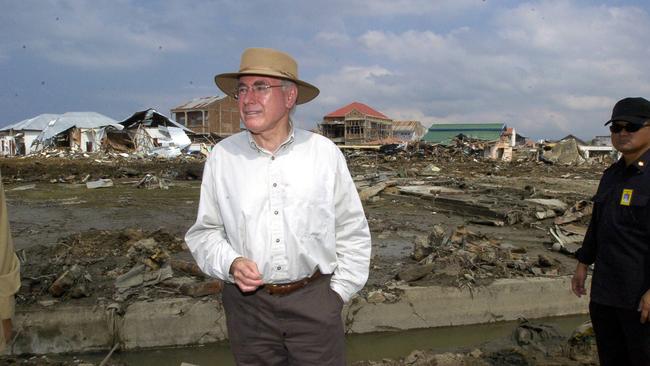
John Howard knew he had to act quickly to help Indonesia after the 2004 Boxing Day tsunami unleashed destruction and terror on Australia’s most important neighbour.
Days after one of the most horrific natural disasters in history killed more than 230,000 people across 14 countries, Australia’s then-prime minister had mobilised a record-breaking $1bn aid package. The unprecedented contribution set a benchmark for global humanitarian aid that became a defining moment in an Australian-Indonesian partnership that continues to shape diplomatic relations 20 years later, evident by the release of the five remaining members of the Bali Nine and the recently upgraded defence pact between the two countries.
“It was the largest single aid contribution we’d ever made,” Mr Howard told The Australian. “It was done for humanitarian reasons, it wasn’t done for any other reason. We had the money and we had the will to help the Indonesians.
“Obviously, if Australia wanted to demonstrate its genuine friendship with Indonesia, this was a way of doing it, but the motivation was humanitarian. It wasn’t cynically political.”
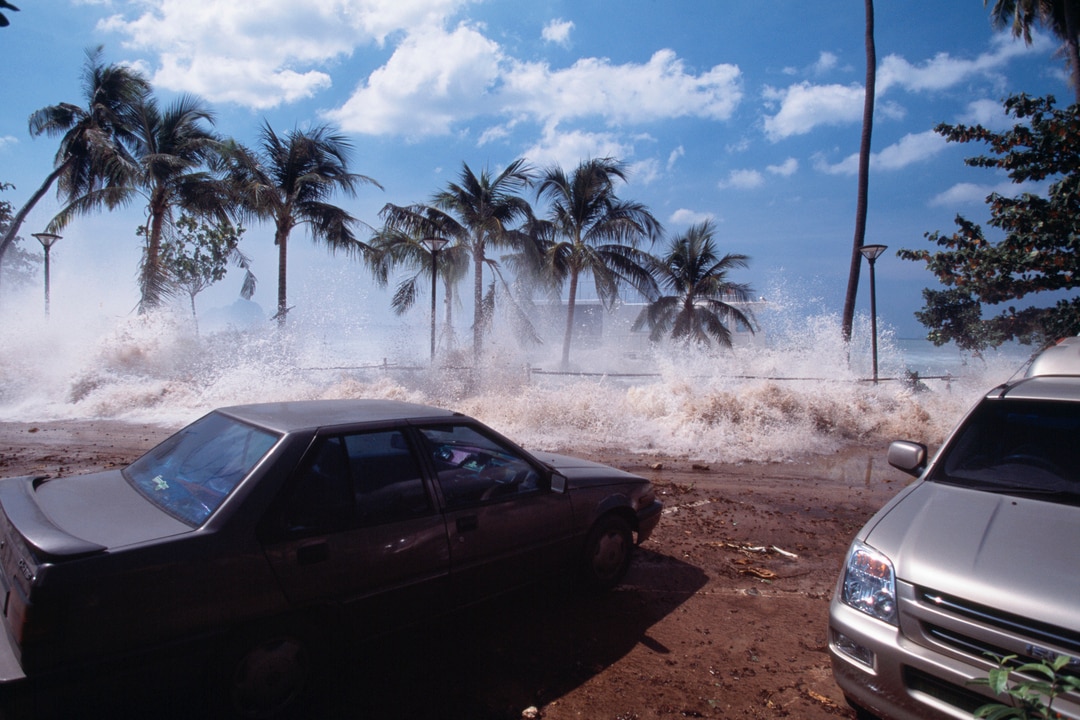
Anthony Albanese was set to lead the nation’s tributes on Thursday, as he said the shock of the tsunami was still felt decades on.
“For 20 years, survivors have lived with the weight of loss and the pain of memories that one terrible day looming so large over all the others,” Mr Albanese said.
“For all of these people, we hold them in our hearts, yet our hearts are also filled by what the disaster showed us of the human spirit.”
Mr Howard – the first world leader to contact Indonesia’s then president Susilo Bambang Yudhoyono – was at Kirribilli House when news broke of the unfolding disaster in the Indian Ocean on December 26, 2004.
Indonesia’s Aceh province was the worst hit, with 168,000 people perishing in the series of waves triggered by a magnitude-9.2 earthquake off the tip of Sumatra.
Plans to co-ordinate a large aid package were quickly set in motion, with Mr Howard on January 6 announcing the long-term strategic partnership that combined aid and technical expertise to assist Indonesia’s massive reconstruction task.
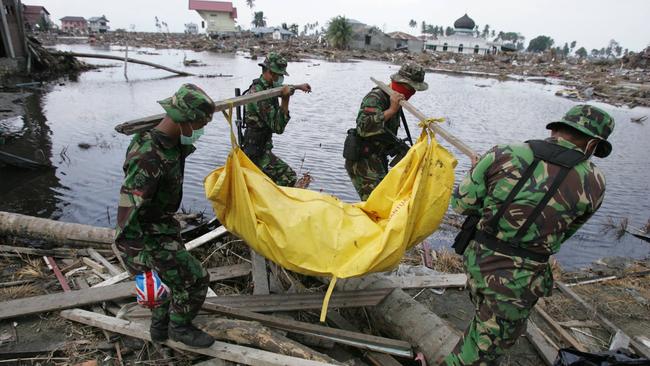
Although the $1bn contribution was significant and unrivalled at the time, it was quickly agreed on “at the top level of government” with Mr Howard telling The Australian the decision was made by him and “the appropriate number of personnel and senior ministers”.
“The circumstances suggested that a quick response from Australia would be the best way to demonstrate to the Indonesians that we cared about them.”
Mr Howard remembers being greeted with “deep affection” by Dr Yudhoyono when he arrived in Jakarta in early 2005 for a conference of tsunami aid donors.
“He was overwhelmed with gratitude and he said I had demonstrated that Australia was a true friend of Indonesia,” he said.
“When I went to the pledging conference, I was very proud of the fact Australia was generous and willing to support Indonesia, far more so than certain countries represented there that made a lot of noise about how much they loved Indonesia but didn’t match the noise with their gifts.”
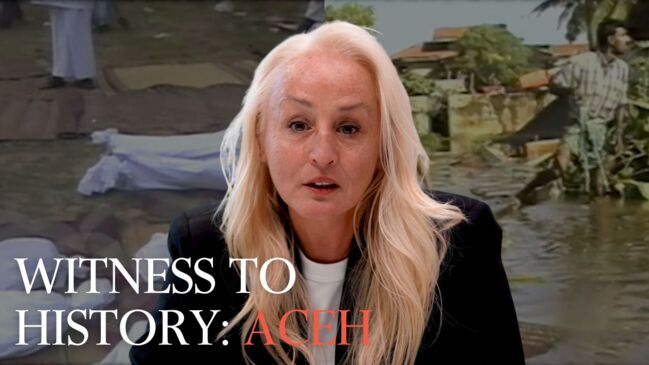
While Mr Howard was insistent the aid package was motivated entirely by humanitarian reasons and not geopolitical strategy, he has acknowledged the relationship between Jakarta and Canberra, damaged by Australia’s support for East Timor’s independence in 1999, brought the two countries closer together.
“I can only say that I work very hard, and I think in the time that I was prime minister and Yudhoyono was the president, our relationship did improve,” he said.
Since then, the Australia-Indonesia relationship has endured inevitable troughs including the 2011 ban on live cattle exports and revelations the Australian government in 2009 had intercepted phone calls of the Indonesian leadership.
But the ties forged in the aftermath of the tsunami have endured, with Defence Minister Richard Marles declaring after the recent election of new president Prabowo Subianto that there was “no relationship more important to Australia than our relationship with Indonesia”.
Last month, the two countries pulled off the biggest and most complex bilateral defence exercise yet, after upgrading the defence pact in August.
The training operation, involving more than 2000 defence personnel, came a week after the Indonesian navy held its first joint training exercises with Russia and days after Mr Prabowo pledged deeper military and economic ties with China.
Then came Mr Prabowo’s release of the five remaining members of the Bali Nine in mid-December, a decision Anthony Albanese praised as an “act of compassion”.
Mr Howard, prime minister at the time of the arrests of nine Australians caught trying to smuggle heroin out of Indonesia, said the group had served “a long sentence … All I can say is I felt very sorry for the families, and I witnessed first-hand the anguish the parents of one of them suffered, because they talked to me about it a lot.”


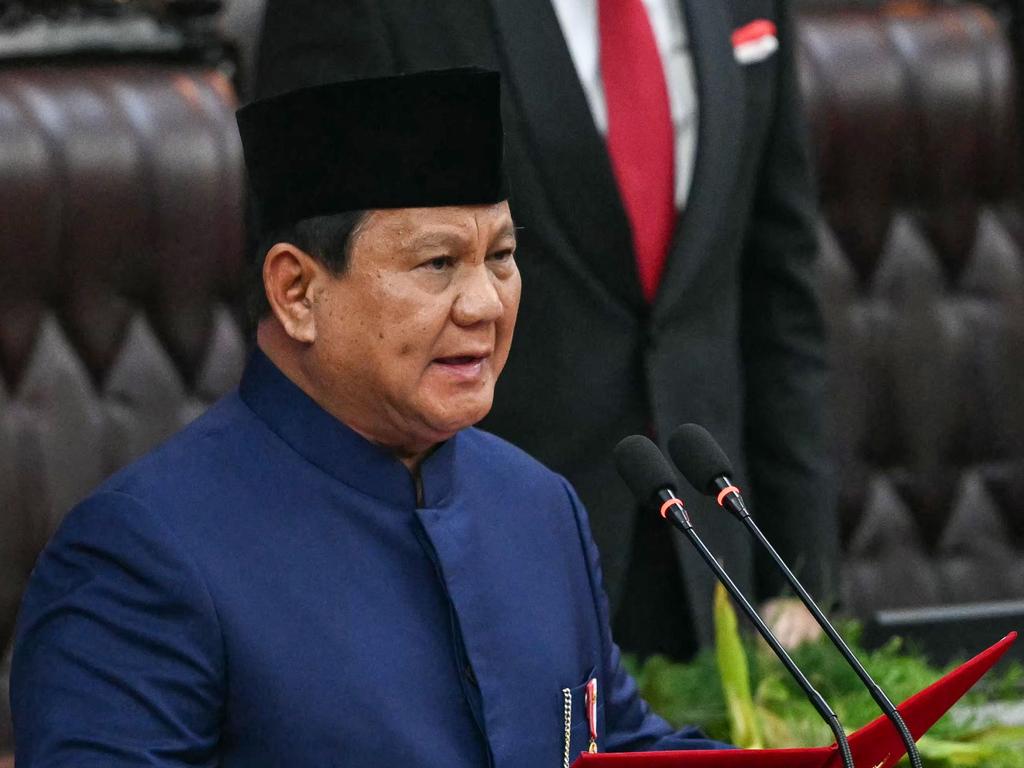



To join the conversation, please log in. Don't have an account? Register
Join the conversation, you are commenting as Logout